How To Prepare For Tonight's Vice Presidential Debate
In ten easy steps

1. Make a pot of very strong coffee. Make the coffee before the debate so if you’re walking over to the coffee maker and fall asleep mid stride, everyone else will still have coffee.
2. Get some toothpicks for your eyes.
3. Set an alarm clock to go off every four minutes. Also, turn down the heat. Stay chilly, stay alert!
4. Ship in some roosters from several different timezones — Europe, India, Japan — if the alarm clock breaks they will wake up at different intervals and provide good backup.
4. Print out several photos of each Vice Presidential candidate and mark them “Pence” and “Kaine.” Put one of photo of each in front of you. When the debate starts, mark down their position on stage so you have that to refer to in case you still get confused. You can also write yourself little notes like “Pence looks slightly older” “Kaine looks slightly more like he’s wearing makeup” if this is helpful. Put another pair of marked photos in any room you might go into in house during the debate — the bathroom, kitchen, etc — in case you forget which is which while you have been absent from the viewing room.
5. Find other people you know who are also watching the debate and promise to text each other every 20 minutes or so. You can say things like: “You can do it!” “Nice job, friend!” “I believe in you!”
6. If you are expected to live tweet the debate hire several assistants to help you. One of them should be standing by with a bucket of cold water, one of them should continuously just be muttering “Pence is on the left, Kaine is on the right,” and finally, one of them should be reminding any arriving guests “Tonight we’re watching the Vice Presidential debates.” (This assistant should have tissues available in case anyone forgot this on the way here and, once newly informed of this fact, begins to cry.)
7. Even if you’re used to making funny comments to friends and colleagues at viewing parties, don’t feel pressure to do that tonight. Maybe have different expectations for yourself than you usually might in situations like this. Maybe tell yourself “If I make it out of this without anyone seeing me drool all over myself, I will call tonight a success.” Be nice to yourself!
8. Someone at this party will know something about Tim Kaine or Mike Pence and they might start sharing some of this knowledge with you. They may say things like “Did you know Tim Kaine speaks fluent Spanish?” or “Did you know Mike Pence’s favorite ice cream is “Moose Tracks”?” You might find this person attractive or even consider dating them. Be careful. What you have is a very mild case of Stockholm Syndrome. Pair up with a buddy to make sure you get home safe.
9. Themed snacks can be a great way to make what might otherwise be the most epically dull night of everyone’s life super fun. Why not make Mike Pence’s favorite recipe — featured on his official Governor’s website — for a wonderful sounding treat called Apple Smiles?
10. Speaking of that — Smile! It’s scientifically proven to make you happy when you’re not!
What Should You Be When You Grow Up? Yourself
And other answers to unsolicited questions.

“I still can’t decide what I want to be when I grow up. How will I know?” — Restless Roy
First off, don’t worry about it, man. We’re not defined by our jobs the way people used to be. How do you think people got last names like Miller, Taylor and Hooper? That’s all they got to be in the old days. Someone who made barrels or drapes or flour. But we get to be way more than just a profession in the twenty-first century. No matter what your line of work will ever be, you will still be you. With lots of pals online. A fearsome avatar on Warcraft. And a secret sexual balloon-popping fetish. Or whatever. Your job is just a part of your life. Not your entire life.
I’ve more or less worked at bookstores since I was fourteen. It’s been a pretty good profession, except for the pay. And the closings of bookstores. I dubbed myself the Jim Reaper at one point. Because like fifteen of the stores that I’ve worked at are now closed. I can really only be blamed for a few of those. I’ve worked in grand bookstores and crappy ones. I wanted to live up to the great quote from the philosopher Lloyd Dobler. But if I had to sell anything, it might as well have been books.
I wouldn’t suggest that anyone make a living selling books. At least anyone who wanted to make a living. A while back I opened my own bookstore. It was a cart full of paperbacks Ben didn’t really care about anymore. I would push them out to in front of the Diner on Broadway in Williamsburg and hang out on Saturday mornings. No one ever bought a book from me. It was the most rewarding bookselling experience of my life. I can always now say, at least I tried to run my own bookstore.
My mother was joking about opening a bookstore with me in my hometown. I could live in her basement and ride my bike to work. She could knit in the corner while I shelved and shelved. We scoped out a storefront. That’s as far as we ever got. It’s probably better that way, because I’d probably be bad at making it profitable. But I could make it fun. Selling Moxie soda on the side. Having weird sales on books with unreliable narrators. Are there any reliable narrators? No.
There are some jobs that might be more plentiful in the future you might want to consider. Fracking. With rising sea levels, possibly someone who knows how to create vast drainage systems. An aqueduct builder? We will always need more rappers and sports stars. I asked a kid what he wanted to be when he grew up. He said a viral YouTube star. That seems like a pretty good gig.
At one of my stops in the bookselling world I shelved the self-help section. There was a book called Do What You Love and the Money Will Follow. I am still waiting for the money to follow me on my adventure of sitting in my underwear writing poems. But be who you want to be. And if you have to sell, produce or manufacture things to do that, then OK.
It doesn’t really matter what you do. It doesn’t really matter if you do it well. Just do it until you want to do something else. And then do that other thing. Money’s funny. We need it, it’s great to spend it when you have it. Looking back I don’t wish I’d made more of it. It’s really nicer to think about how I turned some people on to some cool books over the years. So whether you grow up to be a cop or a firefighter, I hope you will look back and remember not the choices you made, but the clean, clear moments you made a difference. And a little money to boot.
I don’t know that anyone truly gets to be happy in this life. But you can definitely make sure that you’re not unhappy. And hopefully the money will follow. Or whatever replaces money. Books!
Jim Behrle lives in Jersey City, NJ and works at a bookstore.
Female Trouble
There’s no safe way to be a woman in public
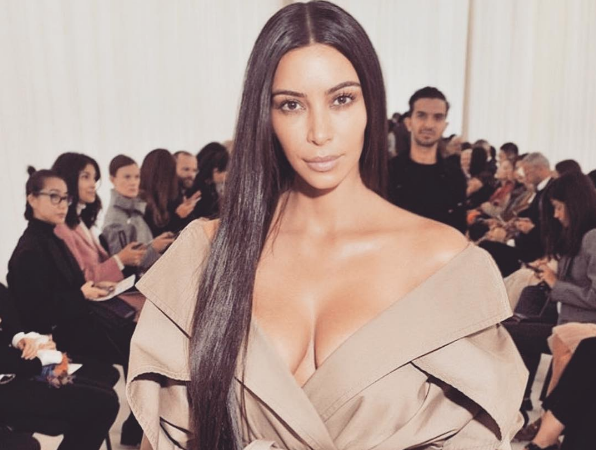
It hasn’t been a good couple of days for the world’s high-profile women. Yesterday, news broke that Kim Kardashian had been held at gunpoint—bound, and gagged in a Paris apartment while $10 million of her property was stolen. And over the weekend, The New York Review of Books purported to reveal the identity of the author who writes as Elena Ferrante, whose bestselling Neapolitan novels detailed a lifetime of their protagonists’ struggles as women. The worlds of professional celebrity and literary success don’t have a ton of overlap, so these two events aren’t particularly linked (I can say with 99% certainty that Kim has never heard of Elena, and if Elena has heard of Kim, I assume it’s in an “Oh yes, her?” sense and not a “Did you watch this week’s episode?” sense). And yet, seeing headlines from both stories flashing back-to-back through my feed, it occurred to me: There is no safe way, currently, to be both female and public.
There is no safe way, currently, to be both female and public.
On the one hand we have Ferrante, someone who chose to bear her success anonymously, divorced from the particulars of her personal life. And on the other hand there’s Kim, someone who has chosen to bear her success personally, with her audience feeling as though they have access to everything she does. Both of them have been punished for putting themselves out there. There is no right way to be female and speak up. Ideally, it seems, women would not be saying anything of their own at all.
Elena Ferrante didn’t do anything new by publishing her novels under a pen name. The history of women’s writing is a history of women publishing in obscurity—the Brontë sisters published as Currer, Acton, and Ellis Bell; Louisa May Alcott published a lot of her non-Little Women works as A.M. Barnard; and in the twentieth century, Joan Cooper published seven short story collections, five novels, and seventeen plays as J. California Cooper*. Even J.K. goddamn Rowling writes books under the name Robert Galbraith now, after her success. Part of writing and being a woman is being reminded, over and over again, that you are a threat. What will your family think? Potential husbands? Better be careful how much truth you tell! The traditional way to neutralize that tension is to assimilate and put everyone at ease by letting them think you’re someone else.
Often these pseudonyms are male or gender neutral, but Ferrante was a literary badboy—she chose a woman’s name. She wanted to protect her own identity while still letting readers know the call was coming from inside the house. A woman had made a book, everyone, and society was about to get doxxed.
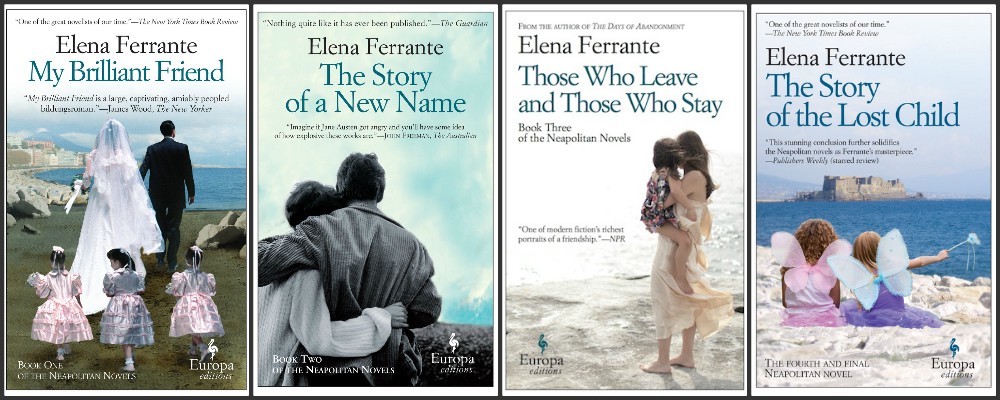
Kim Kardashian’s brand is the opposite of this in a lot of ways—she’s compulsively open with her audience. Nothing is off limits. Here she is sobbing into her webcam on a family ski trip, here she is eating a chicken salad and mango iced tea from her favorite restaurant in Calabasas. Are there parts of her life we’re not privy to? Of course. But she never lets us feel that way. She never lets us see the seams between what she’s projecting and the woman who files her taxes by the same name. Where Ferrante’s work dodges identity politics so her books can speak for themselves, Kim uses them as a tool. Oh, they’ll write me up every single time my nipples are visible? Great. All I have to do is wear a dress and I’ll be on every tabloid front page? Done.
Lest we forget how Kim became famous in the first place — someone sold a sex tape of her without her consent or permission. This is not someone who had plans to be a celebrity. This is not someone who knocked on the industry’s door with a manuscript in hand. This is a woman who has been singled out, and publicly shamed for having sex, taking that trauma and turning it into an empire. The culture won’t let her hide from what they’ve decided her identity is—someone who is sexual—so she’s using it as a tool. Every time a commenter hisses and spits and calls her an attention whore, she wins. She’s made a career out of showing us where the real monsters are hiding.
The culture won’t let her hide from what they’ve decided her identity is — someone who is sexual — so she’s using it as a tool.
The lesson we learn from both of the violations these women endured is simple and sad: in 2016, you can act any way within the spectrum of respectability politics and still not get left alone. If you are female, and you are talking, you are at risk. Someone will want to knock you down a peg, and because we’re still not as protected as people think we are, they will sometimes succeed. Either you’re a beacon of everything threatening and volatile, or you’re a snake hiding in the grass—no matter what, they will threaten your privacy and your life to remind you.
If you are female, and you are talking, you are at risk.
The best course of action, as far as I can tell, is to keep doing what Kim and Ferrante taught us: speak up. Get pissed. Be vocal. In public, in private, however you feel comfortable. And if anyone in your feed gets riled up and hateful at you for talking, just remember that they’re scared. And frankly, they should be. Look at their behavior.
____
*In 2000, when the Washington Post asked what the initial J. in her pen name stood for, she said,“My mother gave it to me, so it’s mine. I have to keep something for myself. I write books. My books are yours. And the rest is mine.”
How to Not Drink at a Show
Forget the night you think you’re supposed to have, and skip the opening act.

In 1987, I was seventeen and killing time in the lobby of a club before a Love & Rockets show. My friend Fritz had smuggled in some whiskey from his dad’s stash and I’d had enough to dull my pre-show boredom. I was scoping the crowd for a boy I might want to make out with more than I wanted to make out with Fritz when the opening act began and these sounds started coming from the other room. Sounds like a bunch of diseased, homicidal cats trying and failing to walk in a straight line. Only sexy.
Fritz and I listened for a minute and then stood up in unison and marched into the half-empty theater and stared at the stage, where a skinny guy with dreadlocks and his band were yowling and bucking around. “What the hell?” Fritz said. I pulled my ticket stub out of my bag.
“Jane’s Addiction?” I read out loud.
“Cool name,” Fritz said and then we stood silently with our mouths hanging open for the rest of the set. The first Jane’s Addiction LP came out a few months later, and a few months after that, they were everywhere.
In my ensuing thirty years of show-going, nothing like that has ever happened again. What I’m saying is you can skip the opening act. I know, I know. Opening acts deserve your support, or at least your polite attention. I tend to take on responsibility for their emotions and watch them play with a rapt stage-mom smile on my face, lest they feel unloved.
But if you’re worried about drinking at this show? Then fuck those guys and their feelings. Buy their CD at the merch table if you need to atone. But avoid that purgatory between opening act and headliner where roadies mosey onstage one at a time — why is it always one at a time? — to place duct tape on cords while you stand around yelling conversation at your friends and watching tall people maneuver in front of you and thinking about how you have a meeting in nine hours. Because that hour (or more!) of purgatory can easily lead to you asking yourself grim questions about how you are spending your time on earth. The kind of questions that might make grabbing a drink from one of the venue’s seventeen bars seem like a good idea. Which it is not. Not for you.
So take back your time and show up only for what you really want to see. But what if I miss musical history in the making? Well, you probably won’t. But if you do…look, don’t you think all of us have more near-misses with history than we even know? Let it go for now. You’re building a better future history for yourself. The other key to sober concert-going is simply to give up all expectations of being transported, moved, or even entertained. Oh, that’s all it takes? Yes. I will explain.
The day of my first sober show — Neil Finn, whom I’d seen many times in my drinking days — I was gripped by the same dread I once felt before major surgery. I knew I wouldn’t drink, but at the same time I literally could not envision myself there sober any more than I could envision myself sliced open in an operating room. Fortunately, I had just enough presence of mind to realize that this was kind of weird. What’s up? I asked myself. Why are you so freaked out by the prospect of this nice New Zealander playing some songs? The answer came immediately: Because I want it to be amazing.
Of course. I wanted everything to be amazing, and I’d used alcohol to dust an extra layer of shimmer onto concerts and meals and vacations and anything else that might not otherwise meet my arbitrary bar for specialness. And now I’d stopped and things just had to be what they were and it was not only intolerable but extremely unfair.
So I made a deal with myself that day that I would simply go through the physical motions of attending Neil Finn’s stupid, useless concert as practice. I would place my body in the club and stand there while live music was played and leave when it ended, if not before. And that would be the extent of my obligation to do or feel anything. If I wanted to, I could even have a terrible time. It worked. I might not have known how to be sober at a show, but I knew how to walk and stand and have ears sober. (And it was, after all that, pretty amazing. I cried, I sang, I stood ten feet from Eddie Vedder. You guys, he’s cute.)
I don’t know you, but odds are you also walk and have ears. Bring it down to that level. Forget the night you think you’re supposed to have. Forget the night you want. Observe the strange rituals of performance. Buy a t-shirt while everyone else is in line at the bar. Hear the first notes of a song you love and love it however you love things now, right now, tonight.
Alex Cameron, "Mongrel"
October sucks.

October comes in with insufferable types making their Nobel Prize predictions, goes out with insufferable types complaining about how dark it’s getting and is filled all the way through with the whole insufferable world — particularly putative adults who should know better, or at least know enough to feel ashamed — talking about Halloween costumes. This year there is also full-on insufferable election fever (I am using the word to convey “sickness” rather than “excitement” in this case) to make the whole thing even more terrible than it usually is. And then, of course, there’s this:
The increase in creepy clown sightings is dangerous. It causes panic & alarm. Please don’t take part in this #109pct
It is enough to make you go back to bed, and let’s not even mention the weather. Unfortunately, the most insufferable part of October is that there’s no avoiding it. Let’s try to get through today and then take it from here. We can start with another video off of Alex Cameron’s phenomenal Jumping the Shark album. There’s a lot going on in the lyrics to this one, so do pay attention. And enjoy. It certainly doesn’t get any better from here.
New York City, October 2, 2016

★★ A black-and-white warbler lay dead on its side on the mulch of a sidewalk planting bed, in perching position. The dampness was less than rainy, the chill less than raw. a brownish or pinkish tinge lay over the gray, though visibility was fine. The unformed colors of autumn just made the trees look drab and mossy. A chilled melon lost its produce sticker as the ambient water condensed out onto it.
Can This Ad About Deodorant Solve The Wage Gap?
The answer may not surprise you
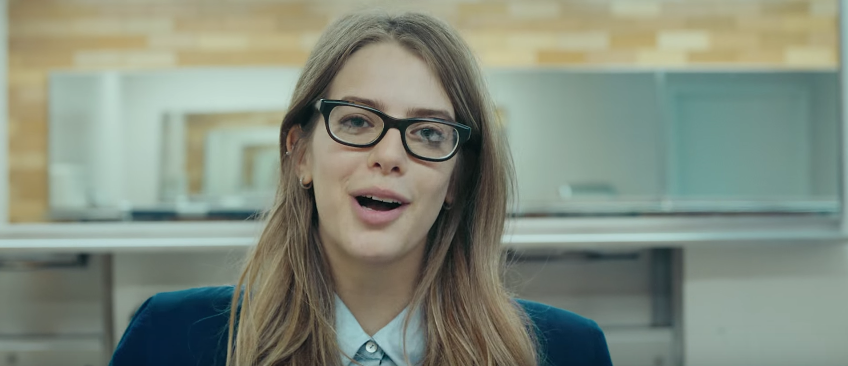
I am between TV shows. From time to time this happens, I’ll finish watching something nutritious and end up floating around for a week or two, unlatched to any new programming in particular, trying one-off episodes of shows I’ve heard about and not enjoying any of them. It’s usually when I get my money’s worth out of having Hulu and Amazon accounts on top of my Netflix situation.
It’s also how I started watching My Mad Fat Diary last night—a show about a British teen reentering high school after spending time in a psych ward in 1996. People who are interested in this program are probably interested in mental health, coming of age tales, body politics, and ~the feminine experience~, so it makes sense that Secret deodorant bought ad time against it. (Disclosure: I have previously worked with Secret on a piece about comedy for Elle Magazine.) But the ad they’ve been choosing to play for me each and every commercial break is… poorly conceived.
In it, a nervous millennial with great hair practices asking for a raise in the bathroom mirror. The pivot comes when her coworker exits a nearby stall to wash her hands and, instead of laughing at the millennial for talking to herself, encourages her to go get what she deserves. Secret: The ally’s deodorant. Secret: we’re all sisters here in the shitter. Secret: at least you won’t have B.O. while you grapple with the realities of your oppression.
To be fair, it worked on me the first time I watched it. “Hm!” I thought. “That was refreshingly unglam!” But the more and more I’ve seen it, the more and more I’ve realized how sinister it feels to watch a company parrot the kind of language that puts you at ease in order to sell you something completely unrelated. Let’s unpack the chain of events here:
- Procter & Gamble has this product, Secret deodorant, that they’re trying to sell to the modern woman.
- Historically, feminine hygiene products have been able to get away with a basic thesis of, “The way you are is repulsive. Don’t worry, though. You can buy this and we’ll make it better.” The modern woman is a little woker than this. In 2016 if you’re a beauty brand and you misstep messaging-wise, it doesn’t disappear overnight. There are places like Twitter and Amazon where consumers can voice their displeasure with your services ad nauseam, and if an influential enough person weighs in to say you’re unwoke, that might be the end of your company. Damn. Better learn how to talk to women.
- Realizing that we don’t want to be guilted into buying products out of fear that no one will fuck us, they have decided to appeal to a new fear: that we are not persevering elegantly enough. You have a job, you have relationships, you have responsibilities, but still you want people to think you look nice. Not for a man, though. You’re not your mother! Just so you can feel put-together while you ‘yas queen slay hunty’ your way to the top. This deodorant isn’t a tool of an oppressive capitalist structure reliant on your buying a new armpit lotion every few weeks, it’s a tool to help you get. that. money! Secret.
- This is what is bleakest to me: they want the emotional credit for being woke while still operating under that broad-level manipulation of implying that you need their product to succeed at all. The reason the millennial in the ad is scared about asking for a raise isn’t because, “Ack! Work is stressful!” It’s because she entered the workplace at a time when her effort is considered less valuable than a man’s, and she has to rev herself up in order to even broach the topic of that inequality with her employers, who may very well say “No!” or “You’re crazy!” or “That’s not your worth!” This isn’t a woman’s natural stress level.
- This is a company saying, “We see you. Everything is hard. Has that established enough goodwill for you to buy our product?” But if you’ve got the eyes to see that there’s a problem, and you’ve got the mouth the make an ad, why not make one that actually has some skin in the game? The tone shouldn’t be, “You’re a badass for dealing with inequality, here’s our product.” It should be, “Separate from deodorant, this is something nobody should ever have to deal with. Here is our one small way that we can help make your life more seamless.” I’d like to believe that’s what some writers set out to do initially, and that the original message got edited and focus grouped away until the commercial became the version I’ve seen so many times.
I guess I’d just never want anyone to think that the reason they didn’t get paid a fair wage is because their pits smelled Powder Fresh instead of So Very Summerberry. You deserve to be paid for your work regardless of your signature scent. You are deserving of equality no matter what brand you align with armpits-wise.
It’s easy to take the years of body-positive advertising Dove has done for granted now that so many companies are mimicking them, but the reason you still hear people bring their specific campaigns up is because we’re still in a place where any brand telling women they’re capable is an unfortunately radical act. And having an example of what it looks like to be spoken to correctly makes soft allies like Secret seem sinister in comparison. These companies have access to all the same data—when one of them misspeaks or doesn’t play to the top of their intelligence, it’s because they thought they could get away with it, and that’s very gross to watch happen over and over again in the name of my own empowerment.
Anyway, I’m still watching the show*, so this ad and I have a couple more weeks together. If Hulu or Secret would like to Venmo me $420.69 in emotional damages, my handle is @christinefriar.
______
*It’s cute! Like Freaks and Geeks but from a foreign land!
'Dear Heart' (1964)
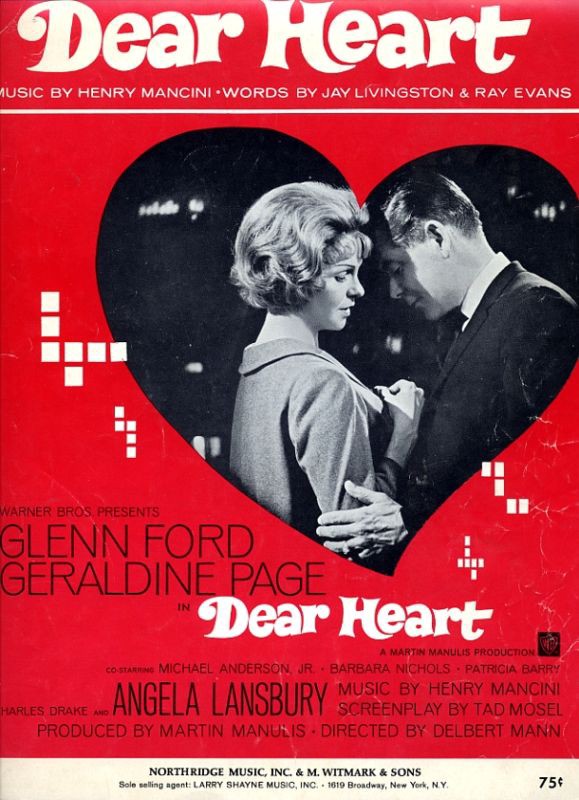
I figured I was the only person alive who had given a second thought to 1964’s Dear Heart until last year, when I spotted it on Matthew Weiner’s annotated list, reproduced at Vulture, of ten films that influenced the creation of Mad Men:
Stumbling upon this film gave me the impetus to finally write the pilot. I was taken by this mainstream Hollywood film that reflected a very casual attitude towards sex, something that seemed uncharacteristic to my preconceptions of the era. With its glib bachelor hero and dowdy, conservative ingénue, it tells a tale of moral corruption and heartbreaking duplicity in the form of a light comedy. As Glenn Ford tries to change his ways and take responsibility for his meaningless romances in glamorous Manhattan, I found a jumping-off point for the series.
Weiner is right on two counts: the way you’ll likely find Dear Heart, a sparkling black-and-white gem directed by Oscar winner Delbert Mann, is by stumbling upon it, as I did with my tightwad’s basic-cable subscription when I was a graduate student living alone in the Midwest in the 1990s. Weiner is also correct that Dear Heart is about sex — whether sex is necessarily demeaning without affection, whether infidelity can coexist with a solid marriage, and so on. But it’s a movie about sex that isn’t trying to be sexy: its ambition is to be a romance bereft of sentimentality, may its drippy title and Mancini’s “Moon River”–knockoff theme song be damned.
Evie Jackson — it terrifies me to imagine anyone but Geraldine Page entrusted with this tricky role — is a fortyish unmarried postmaster from small-town Ohio who comes to New York for the annual postmasters’ convention. She’s all googly-eyed wonder and provincialism: she does things like tell strangers that she can guess their names (she’s always wrong) and has herself paged at the spiffy New Amsterdam Hotel for the thrill of hearing her name ring out in the lobby.
Also staying at the hotel is handsome middle-aged Harry Mork (played by Glenn Ford, whom I never paid attention to until I saw this expertly acted film). Harry is taking his recent promotion from greeting card sales to marketing as a signal to finally grow up and settle down. He’s just become engaged to a widow named Phyllis, but he’s going to squeeze in some oats-sowing before they get hitched. (Harry’s stock pickup line is to tell women that he’s psychic: he can guess what’s inside a greeting card strictly by looking at its front.) Evie is watching when Harry meets and appraises a beehived floozy, June (played with delectable idiocy by Barbara Nichols), who works at the hotel’s magazine counter. It’s enough to convince Evie to get her hair done for the convention’s evening festivities. The head-crowning result, which calls to mind a cross between a feather duster and a cow pie, is one of cinema’s great little sight gags.
Evie is determined to have a night to remember, and that doesn’t include Frank, a married man with whom she had an affair at a convention past and who propositions her again. She demurs — not just because she’s thinking of his wife, although that’s part of it — but she’s sorely tempted, especially as three shrewish female colleagues with their sights set on card games and early bedtimes propose that she complete their quartet. With her aversion to corrupting influences and her ditzy extemporaneous effusions of kindness — to perfect strangers Evie announces “I like your wig” and “I like your beard” — she calls to mind “All in the Family”’s Edith Bunker if she had never been shackled to Archie.
Meanwhile, Harry makes a play for June (“Do you know I have a psychic thing?”; “I don’t wanna see it”), and they decide to rendezvous when she gets off work. To kill time until then, Harry goes to the bustling hotel restaurant, where he and Evie finally meet when they’re forced to share a table. He feels compelled to mention “my wife” — she has a feeling he’s making her up — but he’s charmed by her guilelessness, and remarks at their shared interest in guessing people’s names (though he has the grace not to guess aloud).
Later that evening, Evie has a close call with a predator at her hotel room door. She runs for the stairs and makes it to the lobby, where she crashes into Harry, just returned from his tryst with June. He offers to buy her a drink and they end up carousing with the postmasters, for whom she is obviously a leading light, and whom she introduces not by name but by city or town.

The missed romantic connections continue, followed by second chances. Harry breaks their date to see the Statue of Liberty: following Evie’s example of moral rectitude, he decides to indulge in father-son time with his stepson-to-be. But Evie doesn’t get Harry’s message and is reduced to taking the fourth chair at a card table with the three party poopers.
The fourth party pooper would be New York Times film critic and legendarily tough cookie Bosley Crowther, who panned Dear Heart, lamenting what he considered the “cheap situation into which [screenwriter Tad] Mosel shoves Miss Page” and reducing the main characters to “old-maid postmaster” and “colorless clod.” That’s an awfully thin characterization of two people at fretful existential crossroads. At one point, Harry says to Evie, “That shock you? That girl and me?…It shocks me. And I’d be very pleased if you liked me enough to be shocked too.” This might not be something that Don Draper would have said to a woman, even one he respected, but he might have thought to.
I have to wonder if Crowther, who was born in 1905, was too old to appreciate Dear Heart. A movie about sex is of course about sexual mores, which are of course about gender roles, which are slippery. Patrick’s girlfriend is the one of the pair ready to have sex, which Harry can’t fathom (as perhaps Crowther couldn’t). The adult women of Dear Heart have jobs: with the post office, as artists, at the hotel; the exception is Phyllis (played with scene-stealing self-interest by Angela Lansbury), whose life seems empty. These women may want men, but they don’t need them as much as their mothers did, and unlike Harry, Evie would rather be alone than with the wrong person. She tells him in her hotel room, during a chaste visit, “I wish I could be one of those women who takes what she can have and loves it for what it is.” “But then I wouldn’t want to stay as much,” he says.
Evie isn’t giving up, although she realizes that quitting men is a not unprecedented choice for a woman her age. (“They’re after me, you know,” she says to Harry about the trio of resignedly single women looking for their dependable fourth.) Dear Heart understands that people can be particularly judgmental when it comes to women alone. Because Evie has made the mistake of showing human concern — “Are you all right?” she says when she sees the man who will try to molest her slumped against the wall outside her hotel door — he tells her, “If you’re thinking of screaming or ringing for the elevator, you just remember: you’re the one who spoke to me. We’ve got an ugly name for that in public places. Why don’t you just ask me in?” The film is remarkably attuned to the modern single woman’s plight — then as, hate to say it, now.
The film is attuned in other ways. In a nod to both plausibility and fairness, some of the hotel employees and convention goers are played by black actors — a preposterously rare occurrence in films of this era. A democratizing impulse runs throughout Dear Heart. Floozy June has the last laugh when Harry tries to pass her off as his wife to a concierge at a neighboring hotel. And the upwardly mobile Harry, on the brink of marrying into gentility, registers Evie’s fetching lack of inhibition as this working-class broad sings a daffy song about the mail with her colleagues. Evie is worthy of his white-collar affection — and, sure, worthy of sex too.
Nell Beram is coauthor of Yoko Ono: Collector of Skies and a former Atlantic Monthly staff editor.
The Nevada City Wine Diaries
2013 Château Musar Jeune, Château Musar “Hochar Père et Fils” Red Blend Bekaa Valley, 2011 Donna Olimpia ‘Millepassi’, 2015 Cusemano Merlot
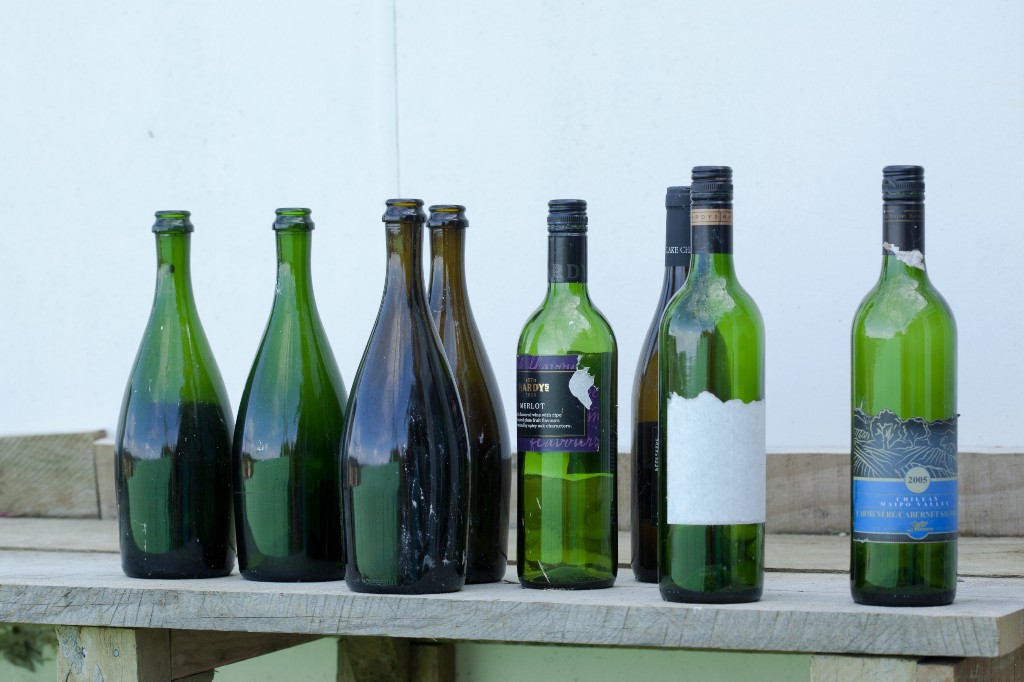
I was very busy last week having my hair repeatedly ruined and I managed to drink some wine but it was all through the lens of ruined hair. So if you don’t want to read about my hair, I’m sorry — go read Wine Enthusiast.
The problem started here: there is only one person who is good at cutting my hair. Now, I see other people with fine haircuts all the time, but mine is difficult, though not impossible, to cut. Many people can still look presentable with an average haircut. My hair is dark brown and very thick. When my hair is cut well, I am more or less pleased with my reflection. When it is cut badly, I look not only like an ugly man, but an ugly man who has had a large pan of brownies dumped on top of his head.
Now you’d think I’d just keep going back to this one person who cuts it right, would you not? Well, sure, except they’ve gotten really really expensive. I’d give this person almost any amount of money to cut my hair. But sometimes I just don’t have it. Actually, I never really have it, but usually I pay it anyway. But I thought maybe I had found someone good, for about half the price. Still an expensive haircut but not ruinously so.
This new candidate about whom I was so hopeful was in San Francisco. Right away I got really bad vibes. She was defensive. “I’ve been cutting hair for fifteen years,” she said when I tried to explain that my hair is a little weird. I so badly wanted to tell her that every single hairdresser says this as some sort of proof of their skill. “Well, I’ve been doing this for eight years, nine years, fifteen years, twenty two years” they say, as if I don’t see people walking around all day with visible layers in their hair, so the hair looks more like roof shingles than hair, or mullets that aren’t supposed to be mullets, or bangs that look like they are in a totally different country from the rest of the hair. All around us is bad hair cut by people whose job it has been to cut hair for years. I’m not even going to talk about hair color except to say your average Scotsman has seen Nessie more times than I’ve seen a woman with good color. (I don’t mention men because no man who is not an extremely successful musician should ever color his hair.)
So Ms. I’ve Been Doing This For Sixteen Years also asks me if I have a picture. I’m sorry, am I fourteen? “Can you make me look like Gwyneth Paltrow in the alternate story of Sliding Doors, the one where she hooks up with the annoying rower who quotes Monty Python?” NO I DON’T HAVE A PICTURE. Look at MY HAIR. Look at MY FACE. CUT MY HAIR ACCORDINGLY. Also, the haircut I have described is the haircut I already have, even though it’s grown out, and it is also, weirdly enough, THE HAIRCUT EVERYONE FROM JENNIFER LAWRENCE TO JENNIFER ANISTON TO 2015 AMANDA KNOX ALREADY HAS.
When she asked me for a picture, I should have left. But instead I talked some more, and she kept saying “I’m listening” with this sort of mock-patient smile employed by someone who hopes no one will notice that she’s really bad at her job. The Brownie Effect was much worse on the right side rather than the left. Then there was this weird choppy thinness around the bottom which I think she thought would create “texture?” I don’t know. But what was chiefly wrong was elemental: I had one haircut on the top of my head and quite another one on the bottom and then also different haircuts on each side.

I went to The Barrel Room on Sansome Street, where a lit-up glassed-in “cellar” takes up the entire back wall. The leather bound menu was so heavy you could probably kill a shark with it, and the font (Rockwell? Fruitiger’s Geometric Slabserif 712?) gave off a sad whiff of some poor sap crying over a creative brief. Their “Current Focus” was wines from the Coastal Mediterranean. I ordered a flight of Lebanese reds. A flight is a small amount (2 ounces) of generally three wines that have some relationship to each other. Don’t order a flight and try to make substitutions.
Waiting for my wine, I tried not to think about my hair. The thing to do was just go see my person. I could see them in two weeks. I’d have to come back here. It was more money. But my hair could be fixed. I couldn’t very well spend the next three months shrieking every time I saw my reflection. I wanted there to be a way around this. But there really wasn’t one. I ached thinking about the money. Next to me a thirty-ish male investment banker was telling a female colleague about a reality show he’d seen where a porn star is penetrated with a large object.
“Why would anyone let anyone do that?” said the woman. They were drinking white wine. I couldn’t make out what she was drinking but the other guy kept trying to get something “crisp and dry” and after trying a few he told the waiter “Just bring me a Chardonnay” and was pleased.
“Seriously,” said the woman. “Explain to me why someone lets someone do that!”
My wines arrived. They had little paper discs on them telling me which was which. The 2013 Chateau Musar Jeune, made from Cinsault, Syrah and Cabernet was spicy and a little sweeter and thinner than I wanted it to be. It hinted at being good, but something about it didn’t come together for me. It’s like my hair, I thought, looking accusingly at the glass. Except not like my hair, because my hair was objectively bad, and I just felt like this wine wasn’t quite for me. Also, I didn’t hate it.
The second wine tasted like pickle juice. So did the third. I was wondering if a briny, pickle-like flavor was sometimes a characteristic of Lebanese red wine. I panicked a little. Was I just being super basic? No, it was obvious. They were off. I so desperately did not want them to be off. If the waitress gave me any kind of attitude about this, I would cry. But she was very nice. She brought me another wine #2. “This is from a new bottle,” she said. “I think we’re out of the third one, but I’ll go check.”
I drank it. It was good. It had a somewhat soothing effect on the terrible combination of fear anger anxiety and shame I felt about allowing myself to get a bad haircut but not so soothing that I am not grateful to Melissa, from Majestic Wines in Bishops Stortford (UK) for describing it in my place:
I thought her “tasting notes” insofar as I even give a shit about tasting notes were okay, but I don’t understand why she says this wine it like a Burgundy when it has no Pinot Noir in it. Did she mean a Côtes du Rhône? (Melissa’s hair, by the way, looks pretty easy to cut.)
A new guy joined the bankers. “This place is sick!” he said.
“I was just telling her about …” said the other guy, and mumbled the name of the porn reality show he’d been watching.
“That show is sick!” the guy said. “Those chicks are sick. Dude—Arnold Palmer died.”
The waitress arrived with another glass. “We don’t have the last wine so I brought you this super Tuscan,” she said. She looked really happy, like she was my mother bringing me a birthday cake, and this warmed my heart. I’m not particularly a fan of super Tuscans but I don’t necessarily dislike them. I have only had maybe five of them. They’re sort of out of favor in a cultural climate that values authenticity. They’re not considered “authentic” Italian wines — they’re the invention of Italian wine producers who got sick of making Chianti the way it had been traditionally made, and felt also that Americans thought of Chianti as being shitty, even though only most of it was shitty (like most wine) and some of it was amazing. So they started making these juicier wines, often eschewing the earthy Sangiovese grape with which Tuscan reds were historically made. This particular wine, a 2011 Donna Olimpia “Millepassi,” had no Sangiovese: It was mostly Cabernet Sauvignon, with a tiny bit of Petit Verdot and Merlot. It tasted like all expensive smooth oaky Cabernet Sauvignons taste to me, but with maybe a little bit more spiciness than it would have if it were from California. I appreciated the spirit in which it has been offered.
“Porn stars aren’t like, American’s brain trust,” one of the guys said.
“Yeah,” the other guy said. “I mean, pretty much anyone can be a porn star.”
“Do you like my necklace?” The woman asked abruptly.
“It looks like a necklace,” one guy said.
“My dad gave it to me,” the woman said. “It’s from my family.”
“Oh, it’s cool then,” said the other guy.
“Yeah, now that I know it’s your family necklace it’s cool,” said the other one.
I pretended like I was writing but I actually was just copying their conversation. At one point the woman went to the bathroom and I was like Holy Shit — what are they going to say about her? But the moment she was gone, they were utterly silent, just staring into their glasses. CNN was showing a montage of Arnold Palmer photos, and I watched, enjoying my fruit-forward Italian luxury wine from the nice lady.
I wish this were the end of the story.

Two days later, back in Nevada City, still so miserable about my hair I felt like my organs were on the outside of my body, I went out for a walk. I decided to swing by this one stylist whose name had been thrown around by some women at a party the night before who agreed that the left side of my haircut was “maybe Okay” and the right side was “super weird” to see what she might have to offer in the way of solutions. Meanwhile, I knew I was stuck with my person and that hideous price. The solution was that there was no solution other than the solution.
The spoken-of stylist wasn’t there, but someone who rented space there was. “What don’t you like about your hair?” she asked, and I cried, “There’s — no — movement.” She nodded, like she understood.
I think you’re supposed to cut some people’s hair — some people’s like mine — very slowly, in small pieces. You have to see how it falls, then go on and cut more, and so on. She cut my hair in great hanks. The climax of this entire three-day extravaganza of expensive self-imposed horror came when she cut one particularly large one, and then showed me the way that you could see that large hank of hair lying on top of the rest of my hair, like extremely rudimentary bas relief. “There’s your movement,” she said triumphantly.
“You look fine,” my boyfriend said later.
“I do not look fine. I look like if Kate on ‘John and Kate Plus 8’ had a brunette sister and she got divorced and “got her hair cut special” for going on a third date with an accountant,” I said.
That night I was by myself, and I didn’t want to drink anything, really, but then I opened up a bottle of 2015 Cusemano Merlot, from Italy, that I bought for $10. “It’s a good wine to give to guests who have already drunk a lot and still want to drink more,” the guy who sold it to me had said, more or less. It was fruity and oaky and just basically wine and I would have drunk it but the alcohol part of things was coming in black and heavy, like ink in my blood rather than light magic. I dumped what was in my glass out and put the full bottle in the refrigerator. Then I watched season three of Transparent — all ten episodes.
It was the season where Maura — who has lived as a man for seventy years and has recently become a woman — finally gets her hair done. She finally looks like herself. Maura waited seventy years. I was only going to have to wait three or four months. I decided to remind myself to feel grateful, just as soon as I stopped feeling enraged.
For Your Ass, An Upsurge In Bulk
The news isn’t so good for your gut, either.

Now that the New York Times has turned into a 21st century Hints from Heloise for the international elite, the gap between what we know and what we don’t know on a wide variety of issues has never been more clear. (Unless those issues center around day-to-day life in the outer boroughs of the city of New York, in which case you’ll need to go somewhere else for guidance.)
While it would be easy to bemoan these changes and what they say about who is being served by the paper these days — or even what “the paper” means in our digital age, when the illusory promise of scale shows that the survival of institutional media is increasingly dependent on securing the patronage of the wealthy — it would be churlish not to acknowledge that the Times, although obviously tailoring its message for a more specific sort of consumer, is doing what it can to provide any number of new voices and perspectives on contemporary topics of importance. (For example: “It is not my place to say who should and shouldn’t be offended by [once innocuous internet meme Pepe the Frog]. If someone’s first encounter with Pepe is a depiction of him with a swastika armband, standing in front of a gas chamber, that’s going to color every future Pepe spotting.”)
In that spirit, we should also note that the Times remains true to its core value of delivering the news — all the news — that is fit to print, however we are defining “print” now. So I am sorry to share the day’s breaking bulletin, which is that you will not get any thinner than you are right now, at least not until May and probably not even then. There’s a chart and everything! Go look at the scale and then say a sad farewell to that number, you fat fuck, because it isn’t ever coming back. Happy holidays!
